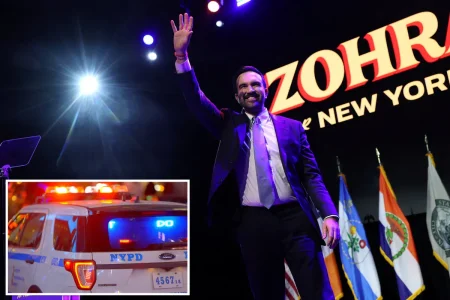Supreme Court Defers Decision on Presidential Authority, Sets January Hearing
The Supreme Court has opted to postpone a ruling on the president’s attempts to remove a key official from her position, instead scheduling oral arguments for January when the matter will receive a full hearing. This deferral comes amid ongoing tensions between the executive branch and Ms. Cook, whose potential dismissal has become a focal point in discussions about presidential authority and the limits of executive power. The justices’ decision to hear formal arguments suggests they recognize the constitutional significance of the case and its potential implications for separation of powers within the federal government.
The delay represents a measured approach by the Supreme Court to a politically charged question that intersects with fundamental aspects of governmental structure. By setting a January timeline for arguments, the Court provides both parties adequate time to prepare comprehensive legal positions while also ensuring the matter receives thorough judicial consideration. The case essentially asks the Court to determine the boundaries of presidential removal power – a question that has repeatedly challenged courts throughout American history as they attempt to balance executive authority with statutory protections for certain officials.
At the heart of the dispute lies the tension between presidential prerogative and institutional independence. The president’s legal team has argued that executive authority necessarily includes broad discretion to remove officials who implement administration policies. Ms. Cook’s defenders counter that certain positions require insulation from political pressure to fulfill their statutory missions effectively. This constitutional showdown reflects broader debates about accountability in governance and whether certain functions of government should operate with degrees of autonomy from direct presidential control.
The Court’s decision to schedule arguments rather than issue an immediate ruling suggests the justices recognize the case’s complexity and importance. Constitutional scholars note that previous Supreme Court decisions have sometimes permitted Congress to create positions with some protection from presidential removal, while in other instances affirming robust executive authority. This case may require the justices to further refine that jurisprudence, potentially establishing clearer guidelines for when and how presidents can remove officials from positions created with statutory independence.
The January timeline places this significant constitutional question squarely in the midst of what promises to be an already consequential term for the Supreme Court. Legal experts suggest the justices may be deliberately taking their time with a case that could significantly affect the relationship between the presidency and independent agencies across the federal government. The outcome could either strengthen presidential control over the administrative state or reinforce barriers to executive overreach, depending on how broadly or narrowly the Court frames its eventual ruling.
In the meantime, Ms. Cook remains in her position while both sides prepare their arguments for what will likely be a closely watched hearing. The case highlights ongoing tensions in American governance between democratic accountability (typically channeled through the presidency) and institutional expertise protected from political interference. Whatever the Court ultimately decides, its ruling will likely have significant implications for how presidential power is understood and exercised in relation to agencies and officials throughout the federal government.










